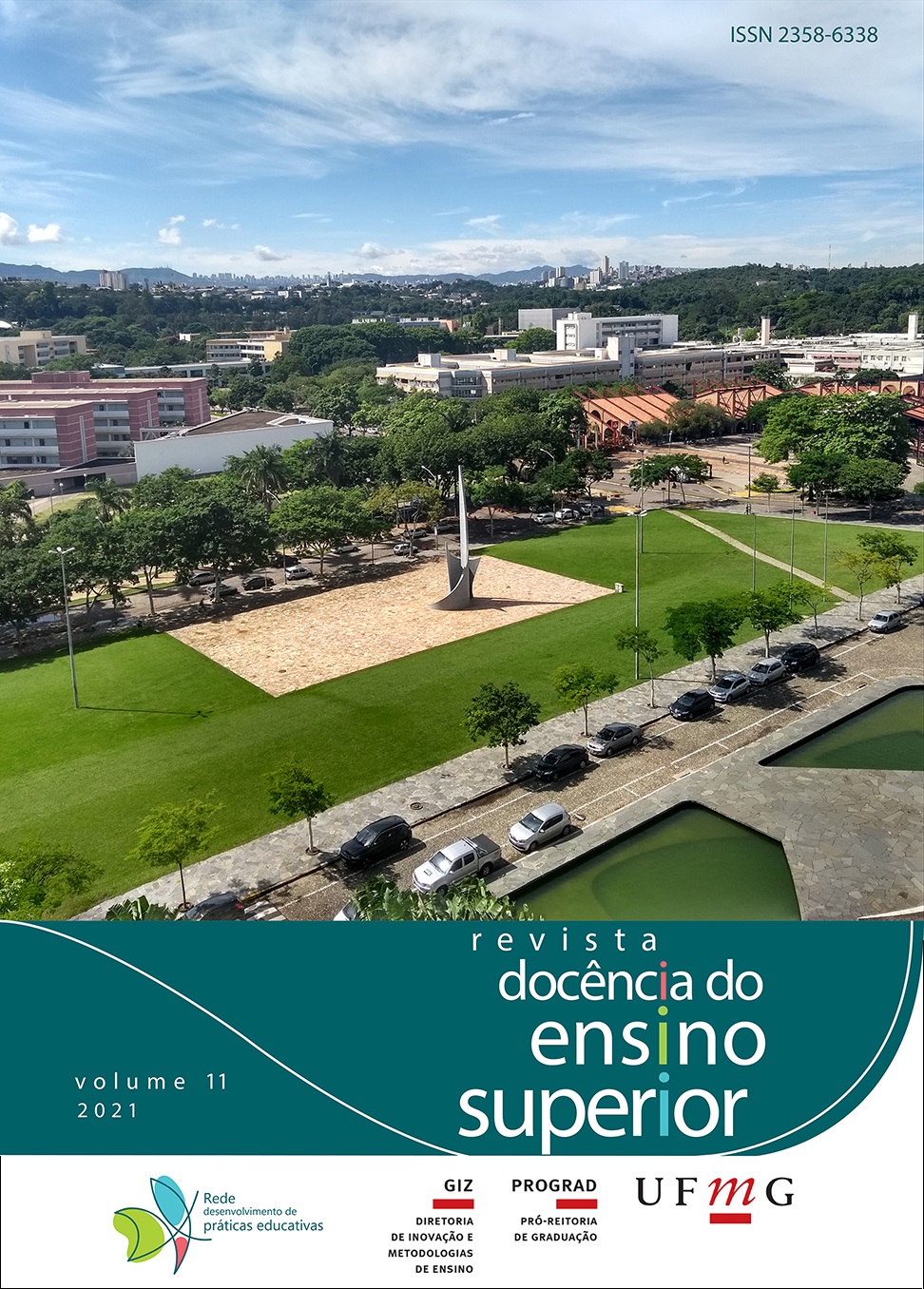Looking for a method for teaching mathematics
reviewing some classics
DOI:
https://doi.org/10.35699/2237-5864.2021.24464Keywords:
Teaching, Shared experience, Method, Dialogical relationship, HeuristicAbstract
This essay explores, through contributions from philosophers and educators, the possibility of building a method for teaching Mathematics, which obviously is not intended to be definitive. This is the aim of the study. To this end, elements such as the triad formed by interest, shared experience and individual initiative; the heuristic method; the hierarchical sequence that exists between the dialogical relationship and experience; and the interconnection between them, through examples of application, are examined. Also, there is a brief look at the practice of love in education, which is a common operator that should be present in any teaching method. The text is finished with the suggestion that love for what one does and the affection one gives are the most powerful agents of transformation that a method can have.
Downloads
References
ALARCÓN VIUDES, Víctor Manuel. Antropología cultural y Creación Matemática. A Parte Rei. Revista de Filosofía, n. 56, p. 1-38, mar. 2008. Disponible en: http://serbal.pntic.mec.es/~cmunoz11/alarcon56.pdf.
AMENGUAL, Gabriel. El concepto de experiencia: de Kant a Hegel. Tópicos. Revista de Filosofía de Santa Fé, Santa Fé, n. 15, p. 5-30, 2007. Disponible en: https://www.redalyc.org/articulo.oa?id=28811907001.
BOLL, Marcel. Histoire de Mathématiques. Paris: Presses Universitaires de France, 1968.
BUBER, Martín. Yo y Tú. Buenos Aires: Nueva Visión, 1982.
CHACÓN ÁNGEL, Policarpo; COVARRUBIAS VILLA, Francisco. El sustrato Platónico de las teorías pedagógicas. Tiempo de Educar, Toluca, v. 13, n. 25, p. 139-159, 2012. Disponible en: https://www.redalyc.org/articulo.oa?id=31124808006.
DEWEY, John. Democracia y Educación. Madrid: Morata, 2004.
ECO, Umberto. La Estructura Ausente. Introducción a la Semiótica. México: Random House Mondadori S.A., 2006.
FERNÁNDEZ, Oscar. Algunas influencias culturales en el desarrollo de pensamiento matemático. In: LESTÓN, P. (ed.). Acta Latinoamericana de Matemática Educativa, v. 24, México: CLAME, 2011. p. 43-50. Disponible en: https://www.clame.org.mx/documentos/alme24.pdf.
FREIRE, Paulo Reglus Neves. Pedagogía del oprimido. Madrid: Siglo XXI, 2012.
FROMM, Erich Seligmann. El arte de amar. Madrid: Paidós, 2014.
GÓMEZ, Susana. Experiencia, historia, memoria. Acerca de una transformación en la Revolución Científica. Revista de Filosofía, Madrid, v. 27, n. 1, p. 75-111, 2002.
KANT, Immanuel. Premiers principes métaphysiques de la science de la nature. Paris: Poche/Vrin, 1990.
PLATÓN. Menón. Madrid: Istmo, 1999.
PLATÓN. La República. Buenos Aires: Alianza Editorial, 2013.
RUSSELL, Bertrand Arthur. Historia de la Filosofía Occidental. Barcelona: Austral, 2010.
Downloads
Published
Issue
Section
License
Copyright (c) 2021 Walter Walker Janzen

This work is licensed under a Creative Commons Attribution 4.0 International License.
Authors who publish in this journal retain the copyright and grant the journal the right of first publication, with the work simultaneously licensed under the Creative Commons Attribution License which allows the sharing of work with acknowledgment of authorship and initial publication in this journal.
Authors are authorized to take additional contracts separately, for non-exclusive distribution of the version of the work published in this journal (e.g. publish in institutional repository or as a book chapter), with acknowledgment of authorship and initial publication in this journal.
Open access policy:
Revista Docência do Ensino Superior is an Open Access journal, which means that all content is available free of charge, at no cost to the user or their institution. Users may read, download, copy, distribute, print, search, or link to the full texts of the articles, or use them for any other legal purpose, without seeking prior permission from the publisher or author, provided they respect the license to use the Creative Commons used by the journal. This definition of open access is in line with the Budapest Open Access Initiative (BOAI).



























